Our projects
Current Projects
Suburban Noir
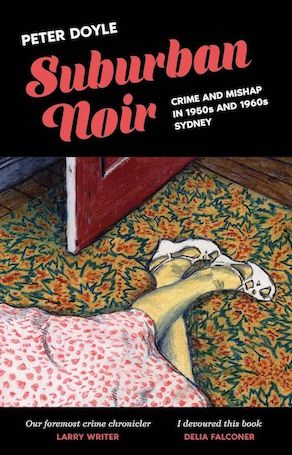
The Suburban Noir Project probes and presents a collection of historical, mostly forgotten crimes and mishaps, mapping the subsequent involvements of press, police, courts and prisons.
Using techniques of literary narration, screen documentary, image and textual analysis, creative writing and original artwork, Peter Doyle explores the often cryptic but suggestive traces these matters have left, and the ways those matters reveal, endorse or contest deeper currents and enduring phenomena of culture, memory and psyche. Collectively the stories compose a spectral alternate vision of the life of the city, and the powers exerted on that life by place, locality, space, landform.
Suburban Noir (Book, NewSouth, 2022)
Slasher Patrol (Film, Guardian)
‘Passage’, Sydney Review of Books [12 Sept 2022]
‘Suburban Noir’ Exhibition, 2013-14, Museum of Sydney
Forensic Encounters
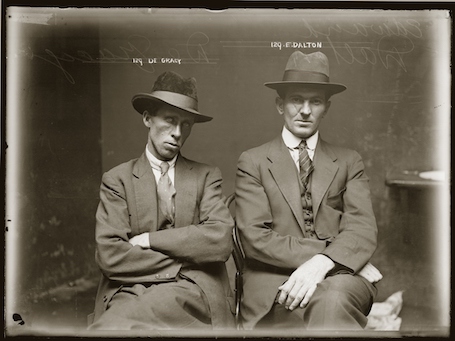 Policing and justice processes leave in their wake great quantities of detailed documentation, images and physical evidence. While most of this is eventually consigned to official archives and storage, much also continues to circulate informally, as curiosity, keepsake or collectible. Scholarly and artistic research interventions enacted upon accumulated forensic material culture necessarily trouble and disrupt extant disciplinary boundaries, invoking at different times the mindsets and methodologies of history, creative writing, fine arts, law, anthropology, ethnography, histories and theories of the image, literature and narratology, museology, criminology and cultural studies among others.
Policing and justice processes leave in their wake great quantities of detailed documentation, images and physical evidence. While most of this is eventually consigned to official archives and storage, much also continues to circulate informally, as curiosity, keepsake or collectible. Scholarly and artistic research interventions enacted upon accumulated forensic material culture necessarily trouble and disrupt extant disciplinary boundaries, invoking at different times the mindsets and methodologies of history, creative writing, fine arts, law, anthropology, ethnography, histories and theories of the image, literature and narratology, museology, criminology and cultural studies among others.
Via an ongoing collaboration, Peter Doyle and Kate Rossmanith are exploring the ethics and aesthetics of forensic encounters, and how such encounters impact the people at the centre of police investigations.
‘Perving at Crime Scenes’ (with Katherine Biber, 2014)
Slasher Patrol (Film 2018, Guardian)
Unnatural Deaths (Film 2018, Guardian)
Ra'ui and Climate Change: Creative Documentary in Regional Agreement-making
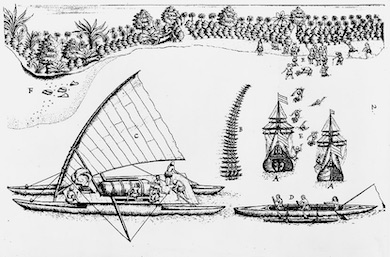
In the face of devastating climate-change impacts, ecosystem collapse, profound species extinction, and the ongoing loss of Indigenous knowledges and language, this project will raise public awareness of climate change in the Pacific. By generating a constituency of concern that fosters social, cultural and political change this project seeks to protect endangered ecosystems and support the critical role of Indigenous knowledge in developing solutions. Specifically, knowledge-tools such as the Polynesian-Pacific resource management concept of Ra’ui are powerful. Understanding how conceptual tools such as Ra’ui can support decolonising strategies and global agreement making in the Pacific will be critical to equitably resolving 21st Century strategic, political, and ecological environments.
With project partners devoted to re-establishing traditional Pacific 'wayfinding' navigation and maritime skills and knowledges using Vaka vessels this project is exciting and ambitious. Project aims will be achieved through museum exhibitions in the Pacific and Europe, featuring documentary films and interactive audio-visual experiences employing 360-degree and VR technology. Additional project outputs include scholarship on comparative eco-cosmologies and the capacity of creative and critical poietic arts-based research to uncover knowledge.
Project partners include Okeanos Foundation for the Sea (Germany), Te Puna Marama Voyaging Foundation (Rarotonga, Cook Islands), Senckenberg Museum (Germany), Te Fara Natura Museum (Moorea, French Polynesia), the French Government via a Fonds Pacifique Grant. Academic Lead Chief Investigators: Associate Professor Tom Murray, Professor Bronwen Neil.
Image: Vaka vessel, sketch from Abel Tasman’s journal, Tongatapu, 1643.
The Remorse Project
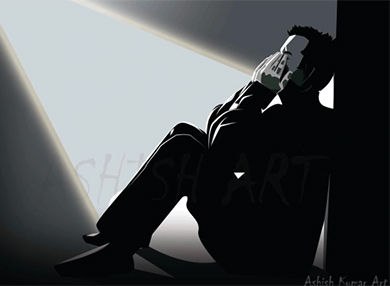 Remorse plays a crucial role in the criminal justice system.
Remorse plays a crucial role in the criminal justice system.
In most common law jurisdictions, an offender’s apparent remorse is a mitigating factor at sentencing. And yet it is unclear how remorse is assessed by judges and parole authorities. What does evidence of remorse look, sound and feel like? What is remorse and what does the justice system want it to do?
These questions are being examined via an ongoing collaboration between Kate Rossmanith (Department of MCCALL), Richard Weisman (York University, Canada), Steven Tudor (La Trobe University, Australia) and Michael Proeve (University of Adelaide, Australia).
Their research methods include those from creative nonfiction writing, anthropology, performance studies, sociology, legal jurisprudence, and psychology. Their work has included collaborations with sentencing judges and coroners.
Investigative Re-animations
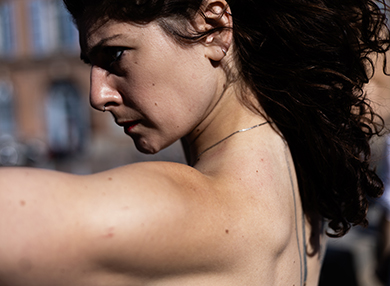 Karen Pearlman's research into creative practice, cognition and film history is producing a series of documentaries that re-animate the lives and work of women filmmakers by using the techniques they pioneered. Each film aims to generate new insights into distributed creativity by uncovering knowledge of creative and collaborative work that is unspoken, often uncredited, and vital. In Breaking Plates, the latest instalment of the series, 21st century filmmakers encounter archival footage of 20th century slapstick comediennes and cross-dressed cowgirls and ask: what did they know? what can we learn? and why are we so much more polite?
Karen Pearlman's research into creative practice, cognition and film history is producing a series of documentaries that re-animate the lives and work of women filmmakers by using the techniques they pioneered. Each film aims to generate new insights into distributed creativity by uncovering knowledge of creative and collaborative work that is unspoken, often uncredited, and vital. In Breaking Plates, the latest instalment of the series, 21st century filmmakers encounter archival footage of 20th century slapstick comediennes and cross-dressed cowgirls and ask: what did they know? what can we learn? and why are we so much more polite?
Breaking Plates is a collaborative project with the curators of the collection Cinema’s First Nasty Women: ‘A mind-expanding endeavour … a triumph of scholarship’ (Dargis, New York Times, 19/08/2022).
Funding support for Breaking Plates has come from the International Videodanse Laureate (France) awarded by La Briqueterie-CDCN du Val-de-Marne and La Place de la Danse - CDCN Toulouse / Occitanie, and the Macquarie University Research Acceleration Scheme.
Image: Breaking Plates ©2022 The Physical TV Company
The Mangatharra Road: A Documentary Film History of First Australian trade
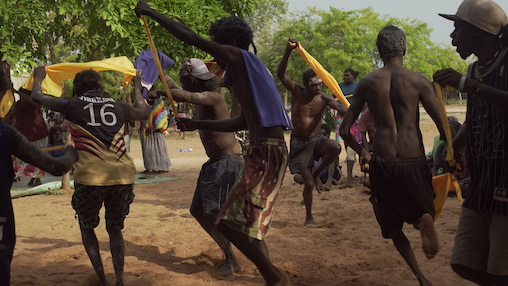
The process of recording a collaborative, cross-cultural, documentary history of Australia’s very first international trading relationship will produce insights into regional history with significant implications for understanding our present, and for conceiving more appropriate post-colonial relations. Employing audio-visual documentary research strategies, this project will also demonstrate the unique affordances of creative-arts 'poietic' research methodologies.
Project partners include Djambawa Marawili, Baniyala Community, and Tarpaulin Productions. Lead Chief Investigator: Associate Professor Tom Murray.
Image (c) Tom Murray 2018. Funeral ceremony at Baniyala community in Blue Mud Bay. The journeying of the Macassans are often invoked in funeral ceremonies.
'Closure' in the Justice System
 There is a widely held view that the criminal justice system can help provide ‘closure’ for victims of crime and their loved ones. However, ‘closure’ as a concept is amorphously defined; there is no agreement about whether it exists, or, if it exists, how it can be achieved.
There is a widely held view that the criminal justice system can help provide ‘closure’ for victims of crime and their loved ones. However, ‘closure’ as a concept is amorphously defined; there is no agreement about whether it exists, or, if it exists, how it can be achieved.
During her Australian Research Council Future Fellowship, Kate Rossmanith (Department of MCCALL) will investigate the ways in which ‘closure’ operates as an emotion (and an emotional expectation) in the justice system and in people’s lives. This will be realised through an investigation into the ways in which bereaved families and police experience unsolved homicide.
Despite the enormous public interest in unsolved homicide cases, very little research has been done on how they affect the people most impacted by them, nor how those people might be best assisted.
The project combines social science methods and creative nonfiction techniques to develop language – new modes of expression – that meaningfully situate people’s fraught experiences of grief, confusion and feelings of non-resolution.
Researching Emotion in the Law: New Directions
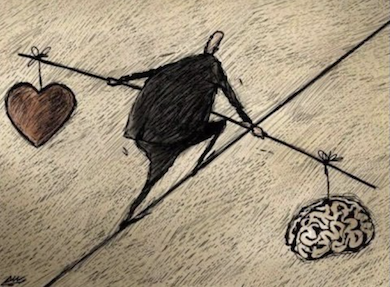 Emotion plays a decisive role in law and in criminal justice contexts and yet we are only beginning to understand precisely how. Part of the problem is that researching emotion in this arena is deeply challenging.
Emotion plays a decisive role in law and in criminal justice contexts and yet we are only beginning to understand precisely how. Part of the problem is that researching emotion in this arena is deeply challenging.
Kate Rossmanith (Department of MCCALL), Kathryn Temple (Georgetown University, USA), Sharyn Roach Anleu (Flinders University, Australia), and Katie Barclay (University of Adelaide, Australia) are asking methodological questions regarding how to study emotion in, and around, law. Their concerns include the value of new directions. These include the epistemological affordances of creative arts approaches to researching affective experience and people’s relationships to institutional structures. This research is supported by the Academy of Social Sciences Australia.
Thinking through Movement
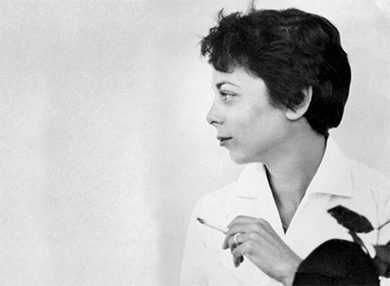 Karen Pearlman's ongoing enquiry into creative practice and embodied expertise is focussed, in this project, on the life and work of filmmaker Shirley Clarke (1919-1997) Shirley Clarke: thinking through movement (EUP 2024) will be the first film-philosophy book on Clarke and the films she edited and directed. It draws on film analysis, archival research, dance and film theory, and creative arts methods, to think through Clarke’s work as a dancer turned multi-award-winning editor and director of dancefilm, fiction, documentary, and video art. Its creative practice and distributed cognition framework provides tools for recognising Clarke’s practices as instances of ‘distributed creativity’ and offers a novel method for analysis of films, filmmaking practices and cultures of film production.
Karen Pearlman's ongoing enquiry into creative practice and embodied expertise is focussed, in this project, on the life and work of filmmaker Shirley Clarke (1919-1997) Shirley Clarke: thinking through movement (EUP 2024) will be the first film-philosophy book on Clarke and the films she edited and directed. It draws on film analysis, archival research, dance and film theory, and creative arts methods, to think through Clarke’s work as a dancer turned multi-award-winning editor and director of dancefilm, fiction, documentary, and video art. Its creative practice and distributed cognition framework provides tools for recognising Clarke’s practices as instances of ‘distributed creativity’ and offers a novel method for analysis of films, filmmaking practices and cultures of film production.
Funded by Macquarie University Outside Studies Program and being undertaken with the Wisconsin Centre for Film and Theatre Research through a visiting researcher program in the University of Wisconsin Department of Communication Arts.
‘Voice’ in Creative Nonfiction Writing
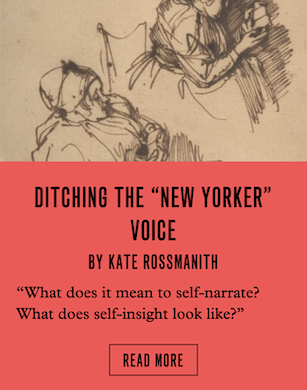 The ‘narrating voice’ in all forms of creative nonfiction is central to the meaning of a given text. The ‘narrating voice’ differs from, what is often referred to as, the ‘writer’s voice’. It is ‘the truth-speaking presence, the narrating “sound” of a piece of writing, the timbre of the consciousness on the page’ (Rossmanith, 2022). While ‘voice’ is central, however, it is under-examined and extremely difficult to conceptualise. This means that the epistemological effect of the ‘narrating voice’ in writing is under-recognised while writing by women is routinely dismissed as ‘confessional’.
The ‘narrating voice’ in all forms of creative nonfiction is central to the meaning of a given text. The ‘narrating voice’ differs from, what is often referred to as, the ‘writer’s voice’. It is ‘the truth-speaking presence, the narrating “sound” of a piece of writing, the timbre of the consciousness on the page’ (Rossmanith, 2022). While ‘voice’ is central, however, it is under-examined and extremely difficult to conceptualise. This means that the epistemological effect of the ‘narrating voice’ in writing is under-recognised while writing by women is routinely dismissed as ‘confessional’.
Kate Rossmanith (Department of MCCALL) and Michael D. Jackson (Senior Research Fellow, Harvard University) are exploring these questions.
Completed Projects
This Is Our School
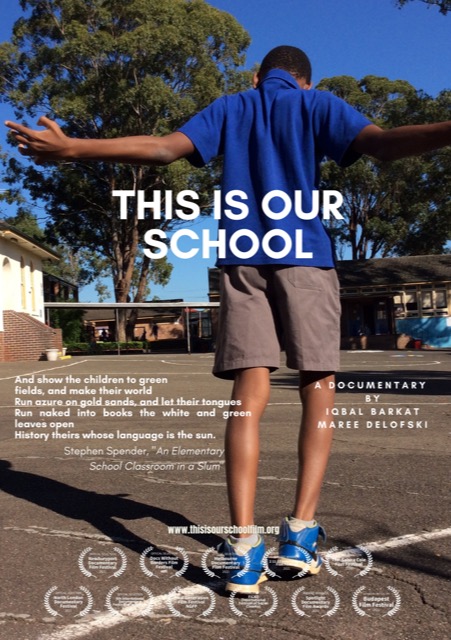 A year-long, intimate and loving study of a primary school in one of Sydney's most diverse suburbs. At its heart is an exploration of how a community comes together to ethically educate children for the contemporary world. A celebration of public education in Australia.
A year-long, intimate and loving study of a primary school in one of Sydney's most diverse suburbs. At its heart is an exploration of how a community comes together to ethically educate children for the contemporary world. A celebration of public education in Australia.
This Is Our School was filmed during one year before the 2020 Covid-19 pandemic. Rather than focus on a particular character, it subtly observes the mosaic of life in a little educational oasis, a state primary school in Sydney Australia.
Merrylands East is a unique state school beset with challenges. Most kids have English as a second language. Many are refugees with no English at all. Some have never attended school before. It's a fluid population where of the 300 or so children enrolled, 100 leave and 100 arrive during the year and of the 19 teachers employed only 3 are permanent. How does the school deliver meaningful experiences for the children, experiences that will remain with them for life?
For Principal John Goh and his staff, challenges have become opportunities to expand learning and build resilience. There are no victims here, rather it's a place where innovative ideas are put into practice. Unlike other schools in the state, lessons start at 8.15am and finish at 1.15pm and there are no bells and very few desks. A carpet becomes a place to learn maths. And there are zero suspensions.
Children's real world experiences become learning opportunities. In an English language support class, a young boy struggles to describe how his grandfather was murdered by the Taliban; a kindergarten child learns to accept critical feedback from her class; a Year 5 boy wants to go to Harvard or perhaps become a plastic surgeon. At the other end of the spectrum, rethinking ideas about learning, space, and play - and questioning the connections between schooling and the future - Goh develops a relationship with super tech company Atlassian. Year 6 kids work with Atlassian analysts to solve the problem of company food waste and present to an Atlassian staff audience of hundreds.
This is a government primary school attempting to implement a philosophy of self-regulation and self-reliance for both teachers and students while at the same time grappling with the education department's changing requirements. In the words of visiting television journalist Stan Grant, "It's the real Australia".
This is their school. Merrylands East Public School, in the heart of Western Sydney, in Darug country.
IDAM:Place
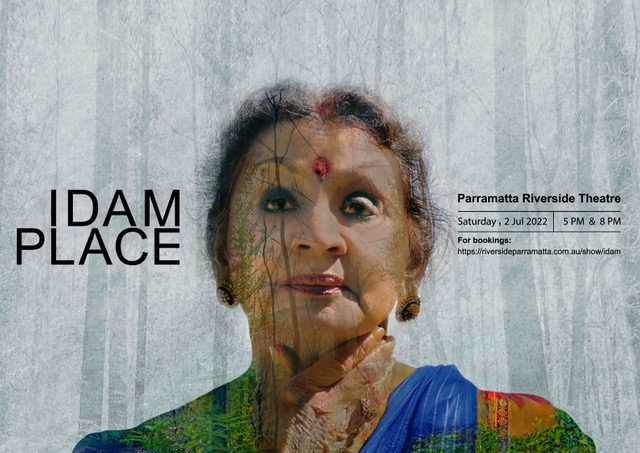 IDAM:Place is an experiential tapestry of the 'live' and the cinematic that intertwines the vibrancy of classical Indian arts with the stunning imagery of the Australian landscape to create a dynamic, transmedia exploration of space and culture. The performance is an assertion of how diasporic art forms are relevant in our collective attempt to understand and address the crises in our society.
IDAM:Place is an experiential tapestry of the 'live' and the cinematic that intertwines the vibrancy of classical Indian arts with the stunning imagery of the Australian landscape to create a dynamic, transmedia exploration of space and culture. The performance is an assertion of how diasporic art forms are relevant in our collective attempt to understand and address the crises in our society.
Ablaze
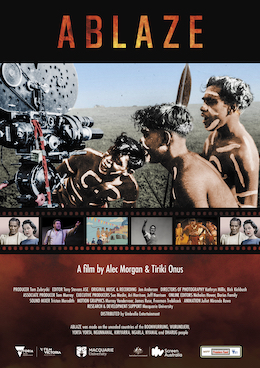 ABLAZE is a film about Bill Onus – a truly heroic cultural and political figure who revived his people’s culture in the 1940’s and 50’s and helped ignite a civil rights movement that helped change the course of history for Indigenous Australians. The documentary is written and directed by Alec Morgan (Lousy Little Sixpence) and Tiriki Onus, Bill’s grandson. The story starts with a film reel that mysteriously turned up at the National Film & Sound Archive. The film was actually made by Bill in 1946 and suggests that he might have been the first ever Aboriginal filmmaker. Tiriki goes on to chase a myriad leads about this grandfather, and uncovers a compelling story of activism, resistance, and politically driven art-making. The film has already picked up a swag of awards including an AWGIE for Best Documentary Script, the Victorian Premier’s History Prize and 2 ATOMS.
ABLAZE is a film about Bill Onus – a truly heroic cultural and political figure who revived his people’s culture in the 1940’s and 50’s and helped ignite a civil rights movement that helped change the course of history for Indigenous Australians. The documentary is written and directed by Alec Morgan (Lousy Little Sixpence) and Tiriki Onus, Bill’s grandson. The story starts with a film reel that mysteriously turned up at the National Film & Sound Archive. The film was actually made by Bill in 1946 and suggests that he might have been the first ever Aboriginal filmmaker. Tiriki goes on to chase a myriad leads about this grandfather, and uncovers a compelling story of activism, resistance, and politically driven art-making. The film has already picked up a swag of awards including an AWGIE for Best Documentary Script, the Victorian Premier’s History Prize and 2 ATOMS.
The Other War - An investigation via documentary film into images of race and otherness in WWI and their implications for Indigenous communities today
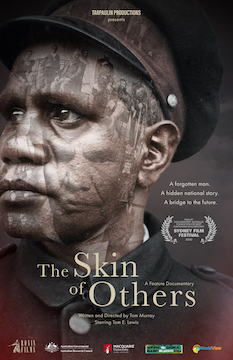 This project was funded by the Australian Research Council (DE140100878) to investigate the junction of war, politics and science in nineteenth and early twentieth century Australia, and their impact on Indigenous communities. Through the life history of Douglas Grant, an Indigenous man from what is today known as the Atherton Tablelands in North Queensland, this project examines how colonial narratives have framed Indigenous lives. As part of ongoing attempts at decolonizing these narratives, and questioning the basis for colonial history-storytelling, the key outputs of this project include a feature audio documentary broadcast on ABC Radio National, a short film broadcast on The Guardian, and a feature screen documentary currently being broadcast on SBS Television. As a series of compelling audio-visual histories these projects make a case for creative-documentary methods as sensory, embodied and powerful scholarly modes of research inquiry.
This project was funded by the Australian Research Council (DE140100878) to investigate the junction of war, politics and science in nineteenth and early twentieth century Australia, and their impact on Indigenous communities. Through the life history of Douglas Grant, an Indigenous man from what is today known as the Atherton Tablelands in North Queensland, this project examines how colonial narratives have framed Indigenous lives. As part of ongoing attempts at decolonizing these narratives, and questioning the basis for colonial history-storytelling, the key outputs of this project include a feature audio documentary broadcast on ABC Radio National, a short film broadcast on The Guardian, and a feature screen documentary currently being broadcast on SBS Television. As a series of compelling audio-visual histories these projects make a case for creative-documentary methods as sensory, embodied and powerful scholarly modes of research inquiry.
The combined outputs of this project have won numerous awards and shortlisted nominations including ATOMs, APRA Award for Songwriting, Australian Screenwriters Guild, and NSW Premier’s History Award. These documentary works featured guest performances from Uncle Archie Roach, Balang T.E. Lewis, and Max Cullen, and were reviewed in major media outlets including The Guardian. Featured scholars include Professor Ann Curthoys, Professor John Maynard, Dr Ernie Grant.
Additional project partners and supporters include Screen Australia, SBS Australia, Ronin Films, and Tarpaulin Productions. Academic Lead Chief Investigator: Associate Professor Tom Murray.
